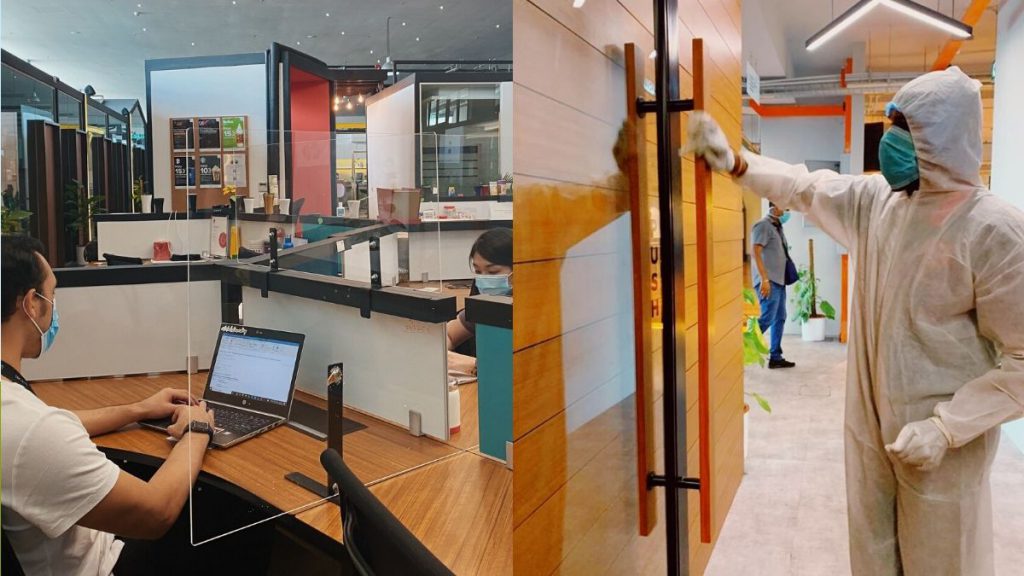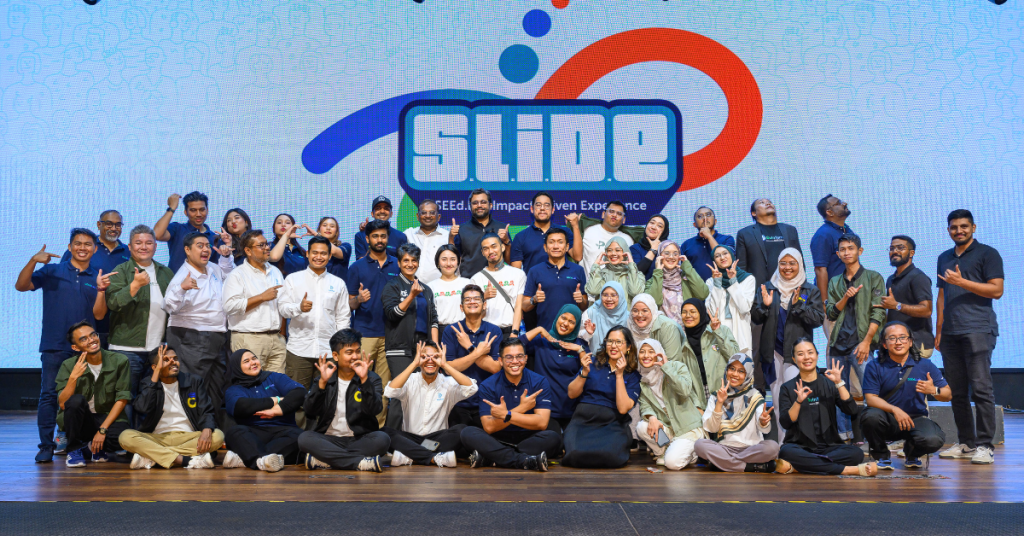Author’s Blurb: Despite my limited experience of working in coworking spaces, I’m still aware that there’s often a high volume of people in these places at a time. It’s a great place to meet new people, but this may be more risky in the current pandemic.
In your own office, you know most of your colleagues. To some degree, you’re able to trust that they wouldn’t jeopardise everyone’s health in the current COVID-19 pandemic.
However, for coworking spaces, you’d see a lot of different faces entering and leaving the place in one day. Most of them might be strangers, and you’re simply not sure if you can trust them to be responsible citizens.
Thus, the burden falls upon coworking space providers to ensure that they can upkeep the hygiene of their spaces and care for the health of their guests/members (coworkers).
It won’t be an easy feat, but here’s what some Malaysian coworking spaces are already doing to increase the confidence and trust of returning or new members, and it involves more than their health.
1. Temperature Checks & Contact Tracing
The first line of defence, temperature checks. Once those have been carried out at all entry points, the coworking spaces ensure that all guests are registered either via a log book or QR codes.

Guests will also have to reveal their travel history and fill in health declaration forms.
2. Providing Necessities
At the moment, most people would already be wearing their own face masks before entering a coworking space, but just in case, the coworking spaces will have a ready supply for those without.

Hand sanitisers are also being placed throughout the space, particularly in high-traffic areas, and HanaWomen Hub has also put up hygiene reminders at their entrance to remind guests of their own responsibilities.
3. Increasing Hygiene Practices
Aside from the more frequent cleaning of their spaces, like se|tempat who will be sanitising common areas in particular thrice a day as per the KKM’s regulations, some coworking spaces have also gone the extra mile.
For example, WORQ will be providing disinfection kits to their guests to wipe down areas before and after use, and Co-labs Coworking is providing their Premium Office Suite (private office) tenants a disinfectant spray bottle per suite, with complimentary refills.
Co-labs Coworking is also observing a 30-minute gap between meetings to enable a wipe down, and are in the midst of installing contactless soap dispensers, disposable toilet seat liners, and biohazard waste bins throughout the space. They’re exploring other options like installing disinfection tunnels and foot pedals on doors too.
At LinDees, they’re looking at air purifying their space with non-alcohol, skin and eye-safe solutions.
4. Regulating The Number Of Guests In One Space
WORQ has reduced the capacity of their meeting and discussion rooms, limited visitor access to the front desk and meeting rooms, and are only allowing members to work at their ‘home’ outlet (the outlet they originally signed up to work at).
se|tempat is limiting the number of coworkers to a maximum of 7 in the space at any one time, and HanaWomen Hub is placing a limit on the number of new signups as well, not just their existing members.
5. Discouraging Entry Of Younger Kids
Both LinDees and HanaWomen Hub are child-friendly and geared towards working parents (more specifically mothers, for the latter).
With children being quite vulnerable to COVID-19, HanaWomen Hub is strongly disallowing parents from bringing children under the age of 12 into their coworking space.

Meanwhile, LinDees is doing the same, allowing only slightly older kids who understand instructions and are able to play along with a structured programme in small groups.
As they also have a playground in their space, LinDees will be enforcing playgroup sessions instead of free play for crowd control.

6. Rearranging Seating
As per social distancing regulations, all members must now sit 1 metre apart, so the coworking spaces have limited the number of people at a large table and some have even taken away chairs, besides just putting up markers and labels.

Co-labs Coworking is placing customised modular partitions in multiple configurations at their Flexi and Fixed Desk areas to offer an added protective barrier between members.
7. Closing Off Shared Amenities
For coworking spaces like WORQ and Co-labs Coworking that have a variety of shared amenities like napping pods, gaming lounges and even shower rooms, these will be temporarily closed off.
WORQ’s pantry will also be closed off to guests, and their staff will instead distribute snacks to members at designated hours of the day to regulate contact with food.
8. Contactless Deliveries
In terms of mail handling, parcels, and F&B deliveries, Co-labs Coworking have set up a contactless delivery drop off and pick up point at all of their spaces.
9. Restructuring Events
Depending on the coworking spaces, events will either be completely postponed until later in the year, or be held with government regulations being observed.

For example, WORQ is holding off physical events until October 2020, and HanaWomen Hub will allow no more than 10 pax at a single event in their space.
10. Pricing Adjustments
With coworking spaces serving many startups and SMEs who had their own businesses impacted, providers have come up with membership discounts to help ease the financial burden.
HanaWomen Hub came up with a post-COVID-19 plan with heavily discounted 3 to 12-month membership plans, and se|tempat is giving a 50% discount on their 7-day and monthly passes until the end of June.
Meanwhile, WORQ’s members have been provided a total of RM250,000 in rental relief over a 3-month period from April to June. The coworking space is also offering comprehensive extension plans and discounts.
For corporates, WORQ has come up with Business Continuity Plans (BCP) offerings at an affordable price.
On the other hand, instead of outright price reductions, Co-labs Coworking will be introducing a stimulus package that includes a deferred payment scheme on rent.
11. Keeping Communities Connected
Following the pandemic, there’s been a shift in the kind of information these coworking spaces are now sharing.
HanaWomen Hub shared self-management tips during COVID-19 while LinDees shared tips on how to cope with new changes and what parents could do with their children while at home. se|tempat is using social media to keep their members up to date about their safety procedures.
Over at WORQ, the focus is on the current trend of digital transformation, so they’ve been keeping in touch with their community by moving their monthly physical Bonfire events online.
Co-labs Coworking have also been reaching out to their community virtually and made investments to improve their technology for going digital.
This includes rolling out an online members’ portal in the second half of 2020, where members can connect with one another, make room bookings, receive alerts, and remain informed about upcoming events.
Bottom Line: These coworking spaces can increase user confidence with all these strategies in place, but ultimately the choice to work in one or not still depends on an individual. As long as guests feel like they’re being taken care of, I don’t doubt that coworking spaces will be filled again when the pandemic is over, particularly with the changes to working culture now.
- You can read more about what we’ve written on coworking spaces here.
Also Read: 3 Ways On How HSBC Is Helping SMEs To Get Through These Tough Times
Featured Image Credit: Co-labs Coworking















